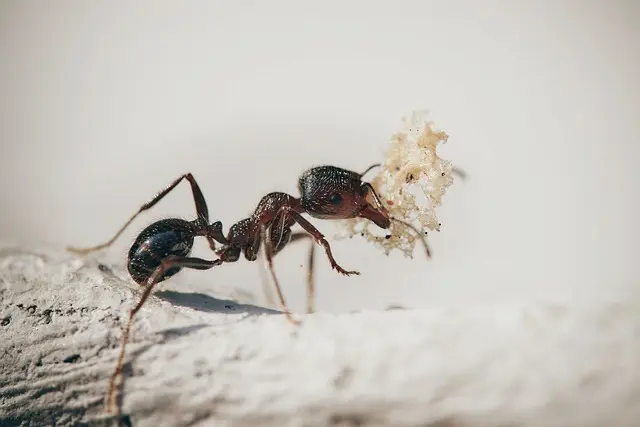Pavement ants, whose formal name is Tetramorium caespitum, are a common problem in many cities. Their name comes from the fact that they like to live under sidewalks, driveways, and cracks in the ground. Even though sidewalk ants are small on their own, they often live in large groups with many queens, which makes them very dangerous once they get into your home. This article will talk about what causes sidewalk ants to get into your home and how to get rid of them or keep them from coming back.
Why Pavement Ants Get Infested
- Food Sources: Pavement ants are adaptable hunters, which means they will look for a variety of food sources. They like to eat crumbs, sweets that have been spilled, and food packages that have not been sealed. Infestations are easy to get when people don’t store food properly or keep things clean.
- For safety, these ants often come inside during bad weather or to get away from very hot or cold temperatures. Cracks and crevices in a building’s foundation and walls that aren’t sealed off make easy entry places.
- Places to Nest: Pavement ants may build nests in parks, especially near flower beds, trees, and shrubs. Their nests, which are often marked by small mounds of dirt, can go deeper into the ground, which means that they get into more things outside.
- Seasonal Change: Pavement ants’ behaviour changes with the seasons. During the warmer months, they go out to find food and make their houses bigger. In the fall and winter, they are less active and may stay inside to escape the cold.
Tips for Dealing with Pavement Ant Problems
- Identification: Figuring out what kind of ants are bothering you is the first thing you need to do to get rid of them. Once you know for sure that you have sidewalk ants, you can choose the best ways to get rid of them.
- Sanitation: Keep your living space clean by quickly cleaning up food crumbs and spills. Keep food in containers that don’t let air in, and clean the kitchen often to get rid of any food residue that could bring ants.
- Sealing Entry Points: Look for cracks, crevices, and gaps in your home, especially along the walls and base. Ants won’t be able to get in if you seal these holes.
- Outdoor Control: Keep outdoor nests and colonies under control by keeping the garden in good shape and getting rid of ant mounds right away. To get rid of these ants outside, you can use bait stations or granular ant traps.
- Ant Baits: For reducing pavement ants, ant baits work well. Worker ants bring the bait back to their nest and share it with the queens and the rest of the colony. This method goes after the whole group, making it less likely that they will come back.
- Professional Pest Control: If you have a serious problem or aren’t sure how bad it is, you should call a professional pest control service. They have the skills and experience to figure out what’s going on and fix it effectively.
How to Stop Pavement Ant Problems
- Regular upkeep: It’s very important to keep up with the upkeep on your property. Trim back plants and weeds regularly, and get rid of any ant mounds in your garden right away. Check your home often for possible entry points.
- How to Store Food Correctly: Keep food in cases that can’t be opened by ants. In this group are both pantry things and food for pets.
- Get rid of wetness: Fix any problems with moisture that could bring in ants. Fix any leaks and make sure your home has good air flow to keep ants from coming into damp areas.
- Professional Inspection: You might want to have your property inspected by a professional on a regular basis to find and stop bugs before they get too bad.
In conclusion, if you want to keep your home free of pests, you need to know what causes sidewalk ants and how to get rid of them. You can keep these common city pests out of your home by removing the things that attract sidewalk ants and using effective control methods.
Ant Control Bolton, A team of licensed, professional, trained, fully insured & equipped pest control specialists ready to take on any intrusive residential and commercial ant infestation.Call now and book a treatment: 647-578-7949
